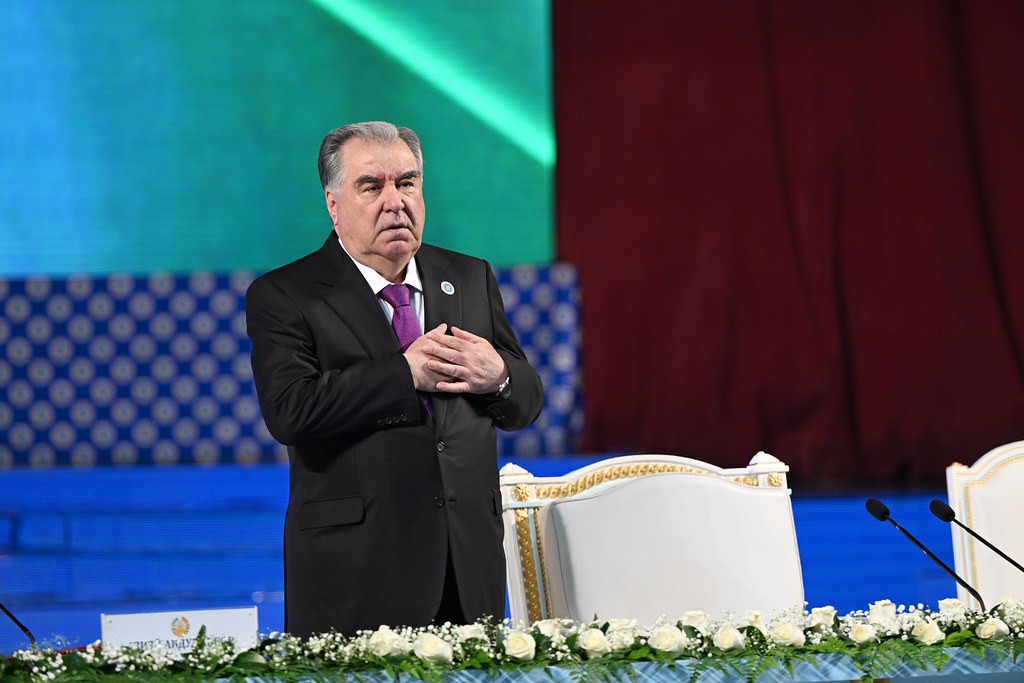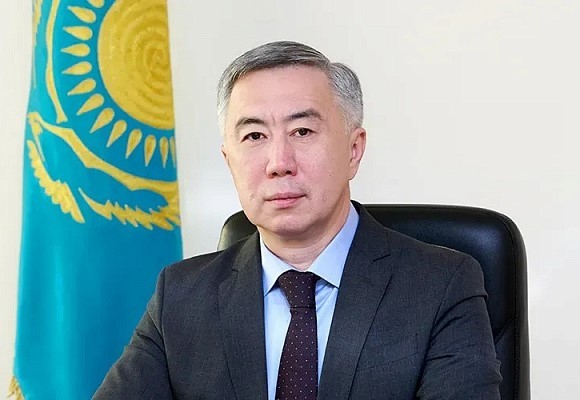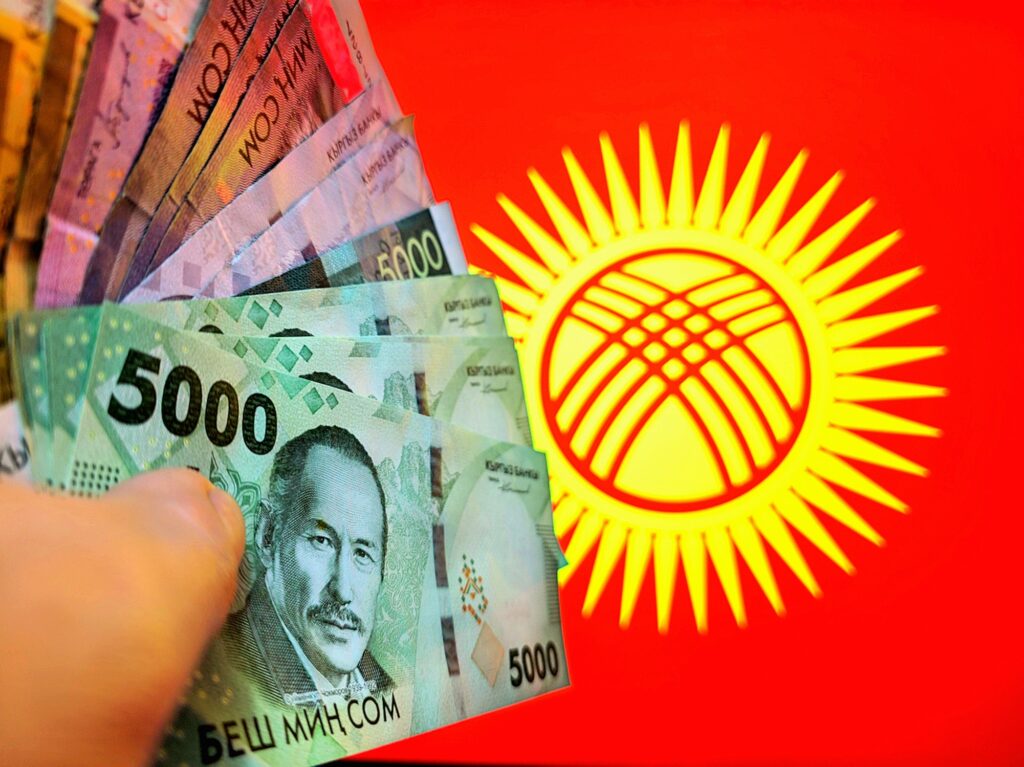TASHKENT (TCA) — Harassment of private entrepreneurs by corrupt law-enforcement officials is widespread in the former Soviet republics of Central Asia, and Uzbekistan is no exception. With reforms announced by the new Uzbek head of state, there is a hope that that practice will stop. We are republishing this article on the issue, originally published by EurasiaNet.org:
A scroll through Olim Sulaimanov’s Facebook page suggests nothing of a man seeking to buck the system in Uzbekistan.
One post from early January features a screenshot of the televised New Year’s Eve address by the president accompanied by wholehearted messages of support from Sulaimanov.
But scattered among the cheerleading for the government are reminders that the businessman recently emerged from his second stretch of prison time in the space of seven years.
“If two times they tried to break a man, but he got back up each time, that shows he has character,” reads one message from December 3.
Sulaimanov blames his troubles with the law on an out-of-control and unaccountable justice system. His one hope is to speak with President Shavkat Mirziyoyev directly so that he might explain what he and fellow entrepreneurs in Uzbekistan must endure just to keep their head above water.
Sulaimanov arrived for an interview with EurasiaNet.org holding folders bulging with papers documenting his legal troubles. Without waiting for questions, he began animatedly explaining how he had been unjustly imprisoned.
“I am looking for justice and I want to show that they put me behind bars on the basis of false testimonies,” said Sulaimanov, an emotional and perennially optimistic 53-year-old.
His first run-in with the authorities came in 2010, when Sulaimanov says he refused to give a $20,000 bribe to an official in the General Prosecutor’s Office. As a result, his companies were impounded and he faced criminal charges on grounds of financial misdemeanors. A sustained letter-writing campaign had no discernible effect.
In August 2011, he emerged undaunted from a 12-month stay in prison.
“My sense of fear disappeared and I understood that if you are right, you should fight to the very end,” he told EurasiaNet.org.
Sulaimanov restarted his three companies, which dealt in construction, exporting fruit and vegetables, and manufacturing industrial cleaning materials. Things went smoothly for a few years, but trouble returned in the spring of 2016.
According to his account of events, three officials from the Tashkent prosecutor’s office turned up at his house one day in April demanding he transfer 203 million sum (around $67,000 dollars at the official rate) to a designated bank account, and make a $30,000 cash payment. After putting up considerable resistance, Sulaimanov said he paid the former amount, but refused to relent on the latter.
Before long, his companies were once again impounded and his bank accounts frozen.
And then suddenly, history intervened and appeared to present a slender lifeline. Islam Karimov, the country’s veteran iron-fisted president, died in September 2016.
Soon after taking Karimov’s place, Mirziyoyev began making remarks that were music to the ears of the country’s long-suffering community of small and medium entrepreneurs. In one landmark address at the end of 2016, he told lawmakers that the authorities were actively hampering prospects for private enterprise.
“You cannot just confiscate money from businesspeople and close their accounts. After all, they create jobs. If there are some violations of the law on their part, let the courts deal with it,” Mirziyoyev said.
Sulaimanov took this kind of talk at face value. All the same, his companies continued to face harassment.
In a desperate measure, in October, he used his phone to film a direct appeal to the president, which he then posted on YouTube. The taboo-busting gesture sparked lively conversations online, making a minor celebrity of Sulaimanov. In the days after the video appeared, Sulaimanov was invited to take part in a talk show on state television to talk about the everyday problems faced by the business community.
That did the job for a while. The General Prosecutor’s Office said it would review the case and bank accounts were unfrozen.
It was a false dawn, however.
In a shock turn of events in early 2017, Sulaimanov was hauled back into court and sentenced to three years in jail on charges of fraud.
“At some point I just could not take it any more. I gave up when they threatened to jail my daughters once they were done with me. They worked running our washing products company. My children are the most precious thing in my life,” he said.
In December, Sulaimanov was released from prison thanks to a nationwide presidential amnesty.
Sulaimanov grew up the youngest of six children in a village in the Qibray district, northeast of Tashkent. He said his stubborn character and striving for fairness were instilled in him by his father, Rahmon Karimbekov, a World War II veteran. After returning from the front to his village, Karimbekov was offered a post as the chairman of a collective farm, but he declined the job, preferring to continue working directly on the land rather than behind a desk. Karimbekov headed up a cotton-picking brigade and remained in that job until retirement. Sulaimanov’s mother, meanwhile, was a kindergarten teacher.
“I grew up in a very simple family … we were always wanting for something. So when we grew up a little, we decided to start keeping household cattle, so we could help our parents somehow,” Sulaimanov said.
That enabled Sulaimanov to make his first foray in entrepreneurial activity, at the age of 11.
“Mother used the milk to make kefir. I would go out after school and sell it on the street at 20 kopecks a liter. Every day, I would bring home two rubles. One summer, builders not far from our street asked for airan (drinking yoghurt) instead of kefir. I could stretch each jar of kefir out to two jars of airan. So from 10 jars of kefir I would earn four rubles instead of two. That was when the businessman in me came alive,” he said.
While people might be able to get away with small-scale, street-corner trading back in those days, running a private business was out of the question until late into the Soviet era. When Sulaimanov finished school in 1982, he trained as a driver and went to do two years of military service in a motorized infantry unit in Moscow.
It was only in the late 1990s, when Sulaimanov got a job in a company dealing in spare auto parts, that he finally got the chance to flex his entrepreneurial muscles once more.
“This was good training for doing business. I learned to negotiate and deal with clients,” he said.
In 2009, Sulaimanov opened his first trading company, using his house and land as collateral. But as soon as he began to scent success, the ordeals began.
After his most recent arrest, in early 2017, he was first held at Tashkent city prison and was then transferred to a prison colony in Almalyk, some 80 kilometers outside the city. This time around, Sulaimanov arrived in prison with a reputation for being willing to go toe-to-toe against prosecutors, earning him respect among fellow prisoners and prison guards alike. Inmates turned to him for legal advice.
Conditions in prison were abysmal. Disease was rife and medical supplies, even for simple illnesses to treat, were in short supply. Prisoners were held 10 to a cell and slept in bunk beds, Sulaimanov said. During the day, inmates were taken out to work either picking cotton or making bricks.
“My only consolation was letters from my son. I kissed them when I received them, and I would read the old letters over and over again. We didn’t have internet or mobile phones in jail. The only thing we got to read was the People’s Voice government newspaper and the criminal code,” Sulaimanov said.
During this stint in prison, Sulaimanov’s businesses collapsed irreparably. Just to make ends meet, equipment from the cleaning materials company was sold off.
Despite the hardship that Sulaimanov has endured at the hands of the system, he is intent on pursuing change from within. Even before his latest legal troubles started, in 2015, he joined the Uzbekistan Liberal-Democratic Party, or O?zlidep, which repeatedly nominated Karimov as a presidential candidate. Mirziyoyev, a former party grandee, was also put forward to run by O?zlidep in late 2016.
Sulaimanov said he wants to run for a seat in the Tashkent City Council on a party ticket.
But his main goal in the short-term is to secure a one-on-one meeting with Mirziyoyev. The conversation between them would be honest and frank, the businessman said.
“I want to talk [to him] about scrapping the bureaucracy hampering businessmen and radically overhauling the banking system, so that the banks work for us, rather than us for them,” he told EurasiaNet.org. “I also want the president to create a system in which law enforcement officials would refrain from interfering with business, but would instead uphold the law.”









